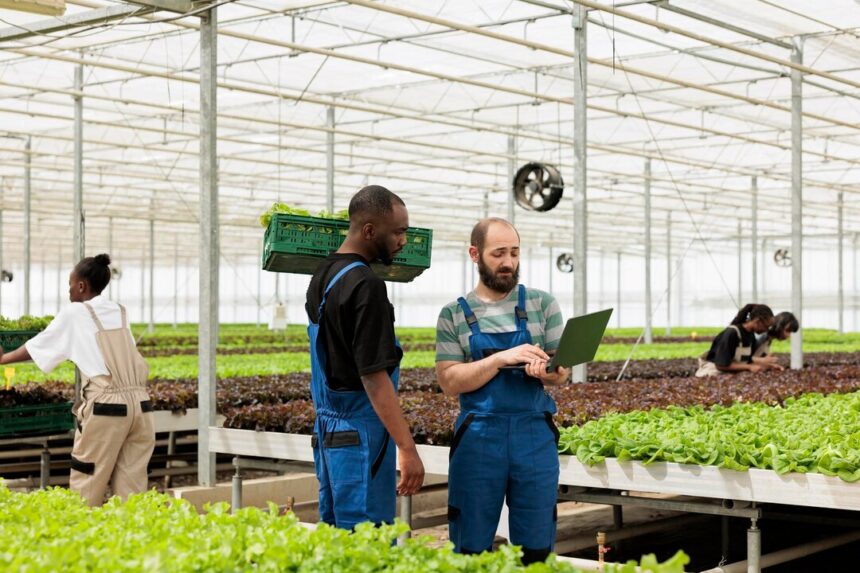Food security, defined as the consistent access to sufficient, safe, and nutritious food for all individuals, is a fundamental human right and a cornerstone of sustainable development. At the heart of food security lies agriculture, the primary source of food production worldwide. Farming, in all its forms, plays a pivotal role in ensuring food security by providing the foundation for stable food supplies, livelihoods, and economic development. In this article, we’ll explore the intricate relationship between farming and food security, examining the challenges, opportunities, and strategies to achieve a more secure and sustainable food future.
The Role of Farming in Food Security:
Farming serves as the backbone of global food systems, supplying the majority of the world’s food and supporting millions of livelihoods worldwide. From smallholder farmers in rural communities to large-scale commercial operations, agriculture encompasses a diverse range of practices and methods aimed at cultivating crops, raising livestock, and producing food for human consumption. The resilience and productivity of farming systems directly influence food availability, accessibility, and affordability, thereby impacting food security at local, national, and global levels.
Challenges to Food Security:
Despite significant progress in agricultural productivity and food production over the past century, food insecurity remains a persistent challenge, exacerbated by factors such as population growth, climate change, environmental degradation, and socio-economic inequalities. Smallholder farmers, who represent a significant portion of the world’s agricultural workforce, often face barriers such as limited access to land, water, credit, and markets, hindering their ability to produce and access sufficient food. Additionally, global food systems are increasingly vulnerable to shocks and disruptions, including extreme weather events, pests and diseases, conflicts, and economic crises, which can disrupt food supply chains and exacerbate food insecurity.
Opportunities for Sustainable Farming:
Addressing the complex challenges of food security requires a multifaceted approach that integrates sustainable farming practices, innovative technologies, policy interventions, and community empowerment. Sustainable farming practices, such as agroecology, organic farming, and conservation agriculture, emphasize principles of ecological resilience, resource efficiency, and social equity, promoting long-term food security while preserving natural resources and biodiversity. By adopting regenerative agricultural techniques, such as crop rotation, soil conservation, and integrated pest management, farmers can improve soil health, increase crop yields, and enhance resilience to climate variability and environmental stressors.
Investing in Agricultural Research and Development:
Investments in agricultural research and development are essential for driving innovation, improving productivity, and enhancing the resilience of farming systems. Research institutions, universities, and public-private partnerships play a crucial role in developing and disseminating technologies, practices, and knowledge that enable farmers to adapt to changing conditions and overcome production challenges. From drought-resistant crop varieties to precision farming technologies, research-driven innovations have the potential to transform agriculture and enhance food security for future generations.
Promoting Inclusive and Equitable Food Systems:
Achieving food security requires not only increasing food production but also ensuring equitable access to food, income, and resources for all individuals and communities. Addressing underlying socio-economic inequalities, gender disparities, and structural barriers is essential for building inclusive food systems that empower smallholder farmers, women, youth, and marginalized groups to participate in and benefit from agricultural development. Strengthening social safety nets, improving access to education, healthcare, and financial services, and promoting land tenure rights are critical steps towards creating a more equitable and resilient food future.
Farming is not just about growing crops or raising livestock; it is about nourishing people, sustaining livelihoods, and safeguarding the future of our planet. As we confront the complex challenges of food security in the 21st century, farming must evolve to embrace sustainability, resilience, and inclusivity. By investing in sustainable agriculture, empowering smallholder farmers, and fostering innovation and collaboration, we can cultivate a future where everyone has access to safe, nutritious, and affordable food, ensuring food security for generations to come.
Join 'Farmers Mag' WhatsApp Channel
Get the latest Farming news and tips delivered straight to your WhatsApp
CLICK HERE TO JOIN






